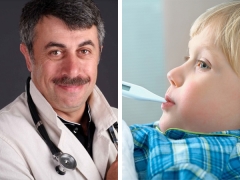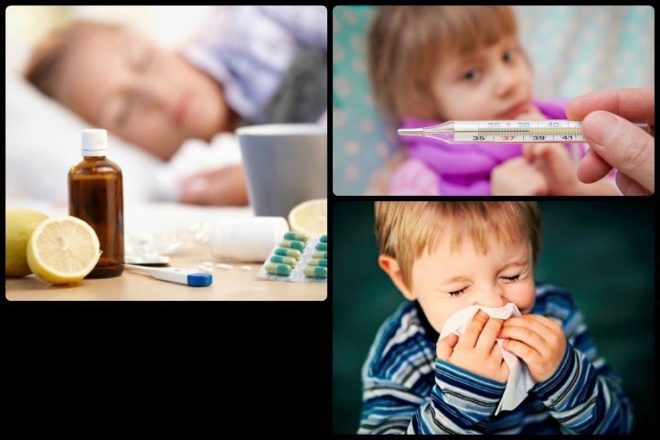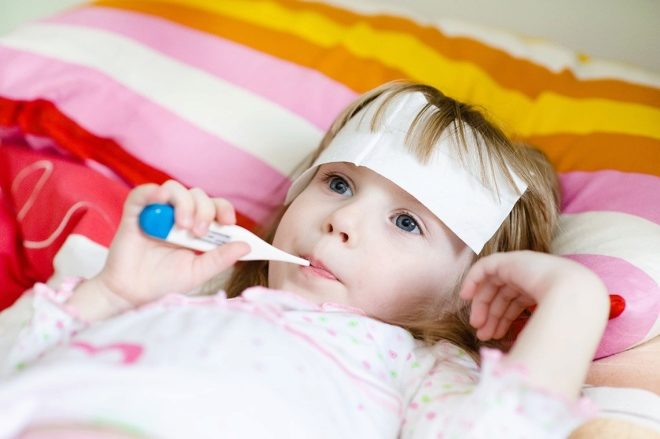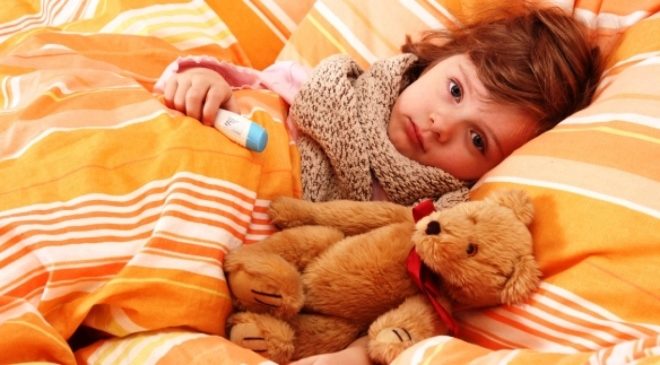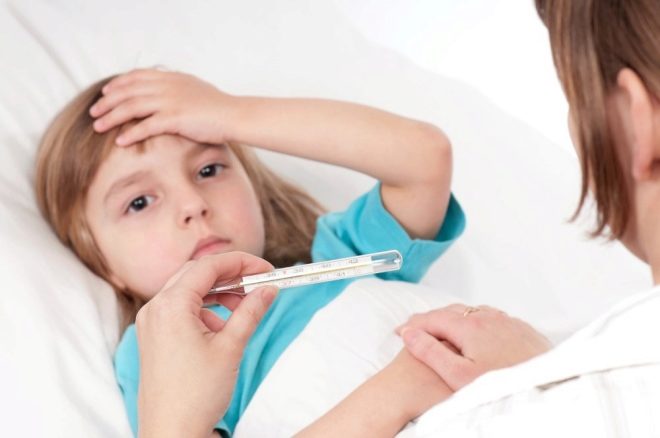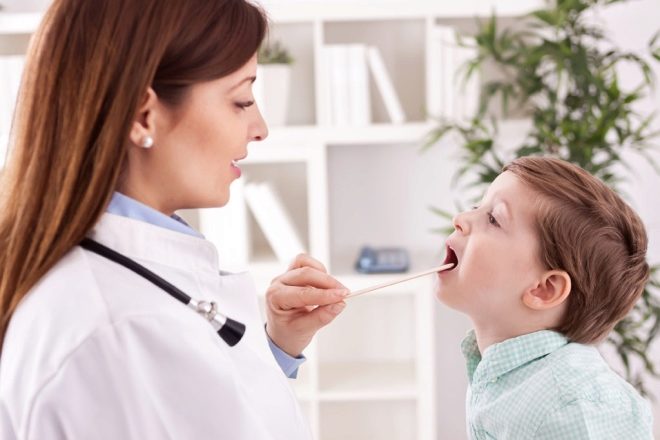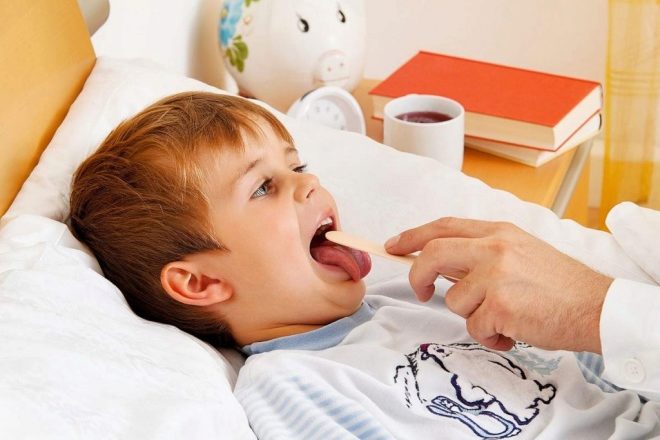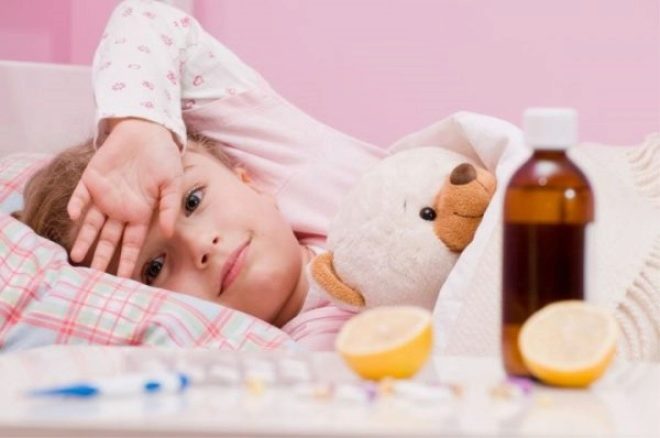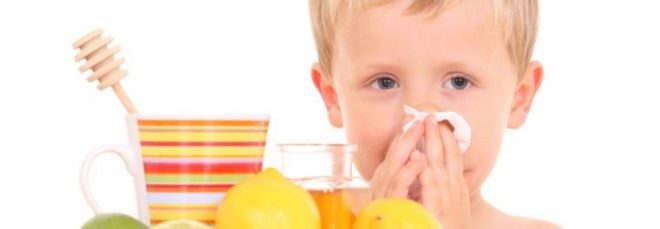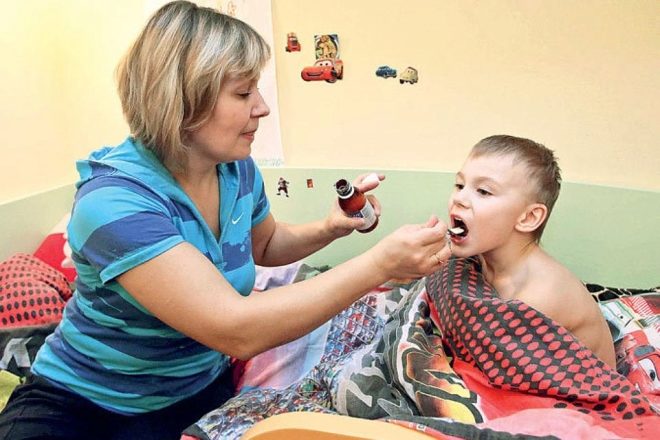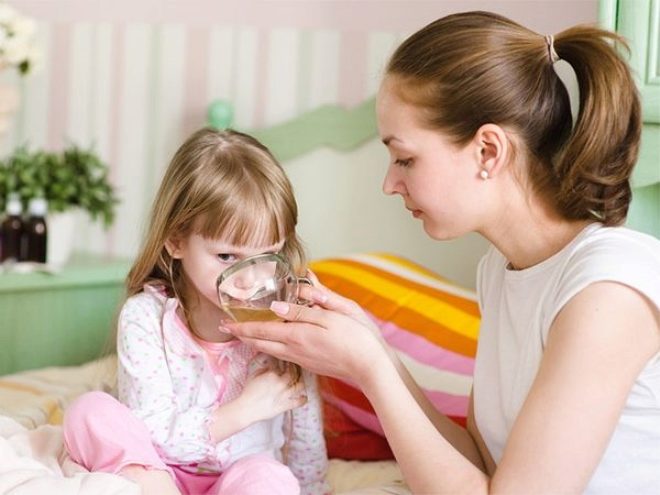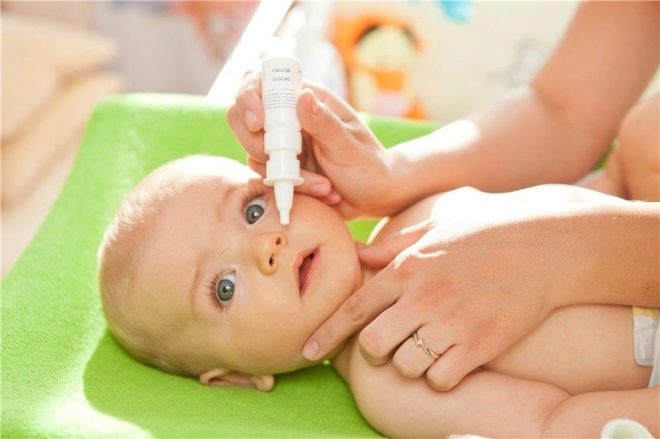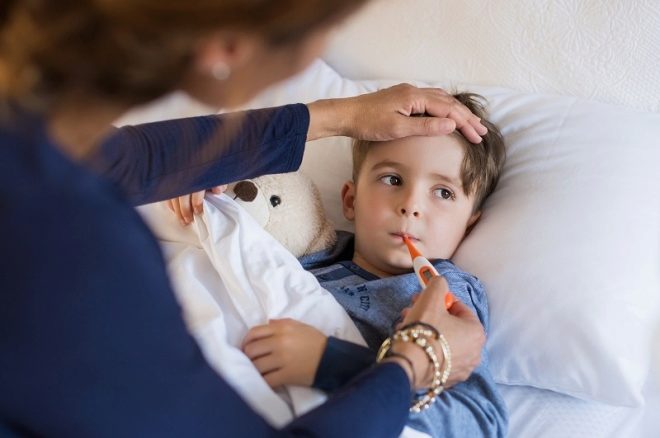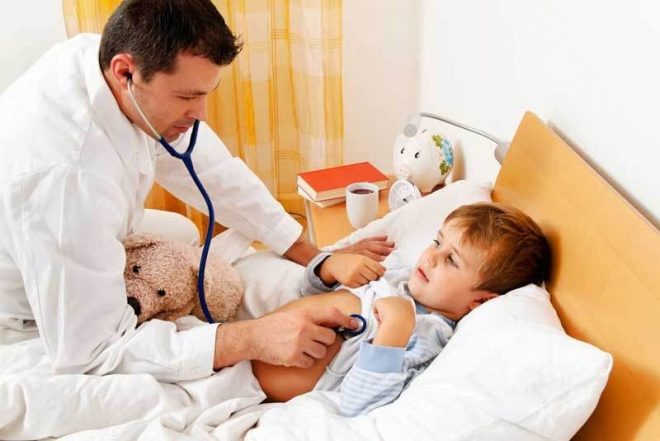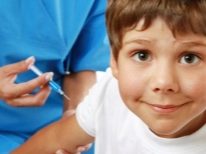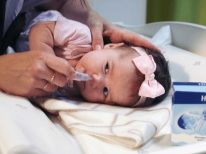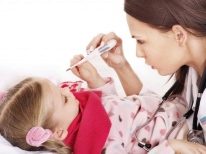Doctor Komarovsky about SARS
Acute respiratory viral infections are the most common childhood diseases. In some babies, they are recorded up to 8-10 times a year. It is because of its prevalence that ARVI is “overgrown” with a mass of prejudices and erroneous opinions. Some parents immediately run to the pharmacy for antibiotics, others believe in the power of homeopathic antiviral drugs. Authoritative pediatrician Yevgeny Komarovsky tells about respiratory viral infections and how to act properly if a child is sick.
About the disease
SARS is not one specific disease, but a whole group of similar to each other in terms of common symptoms of ailments, in which the airways are inflamed. In all cases, viruses are “guilty” of this, which enter the child’s body through the nose, nasopharynx, less often through the mucous membrane of the eyes. Most often, Russian children "pick up" adenovirus, respiratory syncytial virus, rhinovirus, parainfluenza, reovirus. There are about 300 agents who cause ARVI.
A viral infection is usually catarrhal in nature, but the infection itself is not the most dangerous, but its secondary bacterial complications.
Very rarely, SARS is recorded in children in the first months of their lives. For this special “thank you” you should say to the innate maternal immunity, which protects the baby for the first six months since its birth.
Most often, the disease affects children of nursery, kindergarten age and is declining by the end of primary school. It is by the age of 8-9 that a child develops a sufficiently strong immune defense against common viruses.
This does not mean that the child stops having ARVI, but viral illnesses will occur much less frequently and their course will become milder and easier. The fact is that the child’s immunity is immature, but as he encounters viruses, he “learns” over time to recognize them and to produce antibodies to foreign agents.
To date, physicians have reliably established that 99% of all diseases, which are popularly referred to as the single cold word, are of viral origin. SARS is transmitted by airborne droplets, at least - through saliva, toys shared with the diseased household items.
Symptoms
In the early stages of infection, a virus that has entered the body through the nasopharynx causes inflammation of the nasal passages, larynx, dry cough, tickling, and runny nose appear. The temperature does not rise immediately, but only after the virus enters the blood. Chills, fever, feeling of aches throughout the body, especially in the limbs, are characteristic of this stage.
The high temperature helps the immune system to give the "answer" and throw specific antibodies against the virus. They help clear the blood of the foreign agent, the temperature drops.
At the final stage of the SARS disease, the affected airways are cleaned, the cough becomes wet, and the cells of the epithelium affected by the viral agent leave the sputum. It is at this stage that a secondary bacterial infection can begin, as the affected mucous membranes on the background of reduced immunity create very favorable conditions for the existence and reproduction of pathogenic bacteria and fungi. It can cause rhinitis, sinusitis, tracheitis, otitis, tonsillitis, pneumonia, meningitis.
To reduce the risks of possible complications, you need to know exactly with which pathogen an illness is associated, and also be able to distinguish flu from ARVI.
There is a special table of differences, which will help parents at least approximately understand which agent they are dealing with.
| Manifestations of the disease | Influenza virus (strains A and B) | Parainfluenza virus | Adenovirus | Respiratory syncytial virus |
| Start (first 36 hours) | Sharp, sharp and heavy | Sharp | Gradual transition to acute | Sharp |
| Body temperature | 39.0-40.0 and higher | 36,6 — 37,5 | 38,0-39,0 | 37,0-38,0 |
| Duration of fever | 3-6 days | 2-4 days | Up to 10 days with alternating reduction and increase in heat | 3-7 days |
| Intoxication | Strongly pronounced | Missing | Growing smoothly, but generally quite moderate | Weak or absent altogether |
| Cough | Unproductive dry, accompanied by pain in the sternum | Dry, "barking" dry, hoarseness, hoarseness | Wet cough, the intensity of which increases gradually | Unproductive dry breathing difficult |
| The lymph nodes | Increased with complications of influenza | Slightly increased | Markedly enlarged, especially cervical and submandibular | Practically not increased |
| Respiratory tract condition | Runny nose laryngitis | Strong rhinitis, difficulty breathing | Inflammation of the mucous membrane of the eyes, pharyngitisstrong rhinitis | Bronchitis |
| Possible complications | Hemorrhagic pneumonia, hemorrhage in the internal organs, myocarditis, damage to the central nervous system and peripheral nervous system. | Strangulation due to the development of croup | Lymphadenitis | Bronchitis, bronchopneumonia, pneumonia, development of bronchial asthma |
It is quite difficult to distinguish a viral infection from a bacterial infection at home, therefore laboratory diagnostics will come to the aid of parents.
If in doubt, you need to have a blood test. In 90% of cases, it is a viral infection in children. Bacterial infections are very difficult and usually require treatment in a hospital. Fortunately, they are quite rare.
The traditional treatment that the pediatrician prescribes for the child is based on the use of antiviral drugs. Symptomatic treatment is also foreseen: nose drops, rinses and sprays with a sore throat, and cough - expectorants.
About SARS
Some children suffer from acute respiratory viral infections more often, others less often. However, all of them suffer from such diseases, as there is no universal protection against viral infections transmitted and developing by respiratory type. In winter, children get sick more often, because at this time of the year the viruses are most active. In the summer, such diagnoses are also made. The frequency of diseases depends on the state of the immune system of each individual child.
It is a mistake to call colds, says Evgeny Komarovsky. The common cold is overcooling of the body. It is possible to “catch” ARVI without hypothermia, although it certainly increases the chances of getting infected with viruses.
After contact with the sick person and penetration of the virus, several days may pass before the first symptoms appear. Usually, the incubation period for ARVI is 2-4 days. A sick child is contagious to others for 2-4 days from the moment the first signs of the disease appear.
Treatment according to Komarovsky
On the question of how to treat ARVI, Evgeny Komarovsky answers unequivocally: "Nothing!"
The child’s body is able to cope with the virus on its own in 3-5 days, during which time the baby’s immunity will be able to “learn” to fight the causative agent and will develop antibodies to it, which will be useful more than once when the child again encounters this pathogen.
Antiviral drugs, which are presented in abundance on the shelves of pharmacies, advertised on television and radio, promising "to save and protect against viruses" in the shortest possible time - no more than a good marketing ploy, says Yevgeny Komarovsky. Their effectiveness is not clinically proven. Medicines for viruses by and large does not exist.
The same goes for homeopathic medicines (“Anaferon», «Oscillococcinum" other). These pills are “dummies,” the doctor says, and pediatricians prescribe them not so much for treatment as for moral comfort. The doctor prescribed (even if a deliberately useless drug), he is calm (after all, homeopathic remedies are absolutely harmless), parents are happy (they are treating the child), the baby drinks pills consisting of water and glucose, and calmly recovers only with the help of his own immunity.
The most dangerous is the situation in which the parents rush to give the child with ARVI antibiotics. Evgeny Komarovsky emphasizes that this is a real crime against the health of the baby:
- Antibiotics against viruses are completely powerless, since they are designed to fight bacteria;
- They do not reduce the risk of bacterial complications, as some think, but increase it.
Folk remedies treatment of acute respiratory viral infections Komarovsky considers completely useless. Onions and garlic, as well as honey and raspberries - are useful in themselves, but in no way affect the ability of the virus to replicate.
The treatment of a child with ARVI should be based, in the opinion of Evgeny Olegovich, on the creation of “correct” conditions and microclimate. Maximum fresh air, walks, frequent wet cleaning in the house where the child lives.
It is a mistake to bundle a crumb and close all the vents in the house. The air temperature in the apartment should not be higher than 18-20 degrees, and the humidity should be at the level of 50-70%.
This factor is very important in order to prevent the mucous membranes of the respiratory organs from drying out in conditions of too dry air (especially if the baby has a runny nose and breathes through his mouth). Creating such conditions helps the body to quickly deal with the infection, and this is what Evgeny Komarovsky considers the most correct approach to therapy.
With a very severe course of viral infection, it is possible to assign the only drug acting on viruses.Tamiflu". It is expensive and not everyone needs it, because such a drug has a lot of side effects. Komarovsky warns parents against self-treatment.
To bring down the temperature in most cases is not necessary, because it performs an important mission - it contributes to the development of natural interferons, which help fight viruses. The exception is infants up to a year. If the baby is 1 year old and has a fever above 38.5, which has not subsided for about 3 days, this is a good reason to give a febrifuge. Komarovsky advises using "Paracetamol" or "Ibuprofen" for this.
Dangerous and severe intoxication. With vomiting and diarrheathat can accompany fever, you need to abundantly water the child, give sorbents and electrolytes. They will help restore the water-salt balance and prevent dehydration, which is extremely dangerous for children in the first year of life.
Vasoconstrictor nose drops with a cold should be used as carefully as possible.. For more than three days, small children should not drip them, as these drugs cause a strong drug dependence.. For cough Komarovsky advises not to give antitussives. They suppress the reflex by acting on the cough center in the child’s brain. Coughing with ARVI is necessary and important, since it is in this way that the body gets rid of accumulated sputum (bronchial secretions). Stagnation of this secret can be the beginning of a strong inflammatory process.
Without a prescription, no cough drops, including folk recipes for respiratory viral infections are not necessary. If mom really wants to give the child something, let it be mucolytic agents that help to dilute and remove sputum.
Komarovsky does not recommend taking drugs for ARVI, since he had noticed a pattern a long time ago: the more tablets and syrups the child drinks at the very beginning of a respiratory viral infection, the more drugs then have to be bought to treat complications.
Mom and dad should not torment the conscience for the fact that they do not treat the baby. Grandmothers and girlfriends can appeal to conscience, reproach parents. They should be adamant. There is one argument: there is no need to treat ARVI. Reasonable parents, if the child is sick, do not run to the pharmacy for a bunch of pills, but wash the floors and cook compote of dried fruit for the beloved child.
How to treat SARS in children, Dr. Komarovsky will tell in the video below.
Do I need to call a doctor?
Evgeny Komarovsky advises when any signs of ARVI be sure to call a doctor. Situations are different, and sometimes there is no such possibility (or desire). Parents should learn the possible situations in which self-healing is deadly. A child needs medical care if:
- Improvements in the condition are not observed on the fourth day after the onset of the disease.
- The temperature increased on the seventh day after the onset of the disease.
- After improvement, there was a noticeable deterioration in the condition of the baby.
- There were pain, purulent discharge (from the nose, ear), abnormal pallor of the skin, excessive sweating and shortness of breath.
- If the cough remains unproductive and his seizures become more and more severe.
- Antipyretic drugs have a brief effect or no effect at all.
Emergency medical care is required if the child has convulsions, convulsions, if he loses consciousness, he has respiratory failure (breathing is very hard, there are wheezing during exhalation), if there is no rhinitis, the nose is dry, and this may be one of the signs of developing sore throats). Call "ambulance" should, if the child has vomiting on the background of temperature, rash or swollen markedly neck.
Tips
- If it is possible to get a baby a flu shot, then it is better to do so. True, parents should remember that it will protect only from the influenza virus. Vaccination is not a hindrance to other viruses mentioned above, and therefore the risk of ARVI and Colds stays high.
- According to Komarovsky, prevention of ARVI and influenza with the help of antiviral drugs is a story invented specifically to increase the sales of expensive antiviral drugs. To protect the child, you need to remember that the main source of infection is a sick person. In the period of mass morbidity, it is better to limit a child’s visit to places where a large number of people gather. Need more walking on foot, less travel in public transport. It is much more difficult to get infected on the street (especially during the cold season) than on the bus or trolley bus.
- A healthy child does not need a gauze or disposable mask. It is required by the patient. It cannot be said that it will completely protect others from infection, but to some extent, reduce the spread of the virus from the patient in the environment.
- A child should not be forced to eat at the time of illness. An empty stomach is easier for the body to mobilize all forces on the immune response. Drinking plenty of fluids is a must in the treatment of respiratory viral infections. The more the child drinks, the less likely that the mucous membranes will dry up, the bronchial secret will become thick and difficult to separate. The risk of complications is significantly reduced.
- Rinse your nose often with saline, which is easy to prepare at home. You can dig it in as often as you like. You can use the prepared saline solution, which is sold in any pharmacy.
- At high temperatures, you can not rub the child badger fat, make compresses, soar legs in a basin, bathe the baby in hot water. All this violates thermoregulation. Bathing is best left for later when the fever subsides. Bath and sauna are also strongly not recommended - as, however, and inhalation, banks, rubbing alcohol solutions.
- It is categorically impossible to lead a child with ARVI to kindergarten or school so as not to contribute to the formation of the epidemic. It is also better not to go to the polyclinic, so as not to infect children who are in the waiting list with their parents. The doctor is desirable to call the house.
- At high temperatures, the child must be put to bed. Bed rest will reduce the load on the body. At the stage of recovery, when the airways begin to clear of sputum, it is better to provide more movement. So the bronchial secret will move away much faster.
Should I use antiviral agents for ARVI, see the transfer of Dr. Komarovsky.
